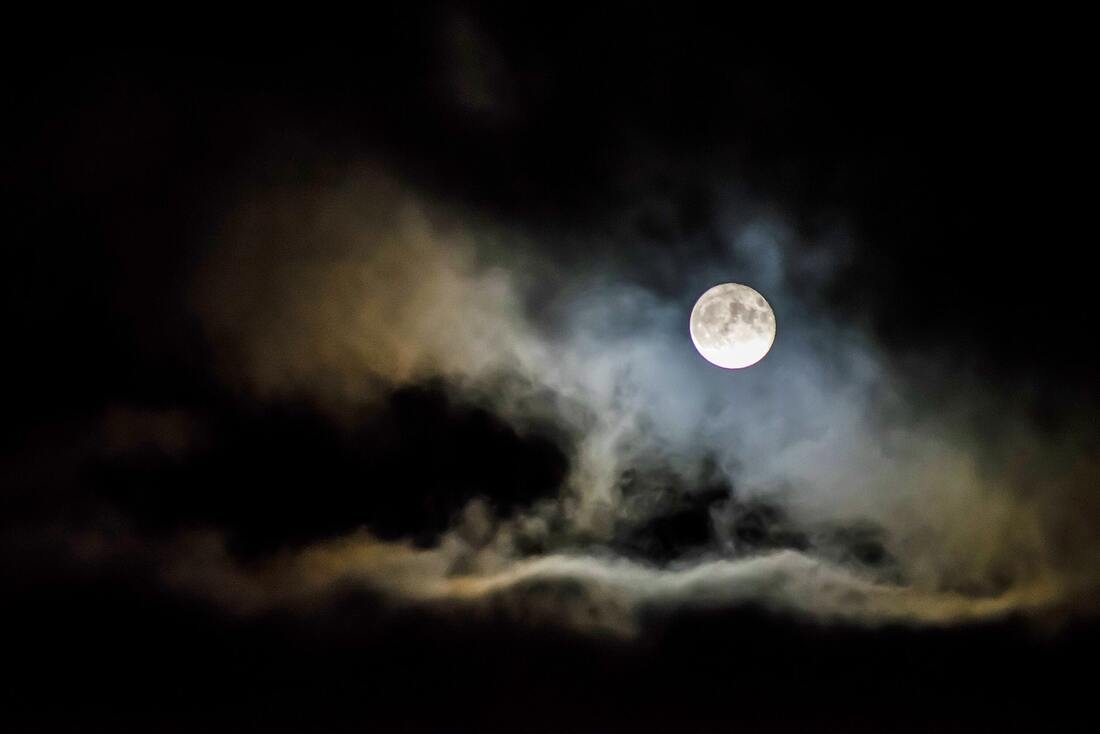This coming Friday, July 23rd, we’ll be under a Full Moon at 10.37 p.m. EDT. It’s not a supermoon or any sort of eclipse this time but it will look full for a few nights and you can watch Jupiter and Saturn chase the moon.
I've kept my eye on the moon since high school, and kept the full and new moons on my calendar for fifteen years, but I started paying attention daily the year I lived on a remote strip of beach in South Carolina. It was so dark and open there that I could walk to the shoreline at night, lay back on the sand and see the Milky Way and more stars than I could comprehend. Because I planned my days around long beach walks, checked the tide app on my phone every night. When the tide was high, there was no beach for walking.
Mostly, when I mention to…pretty much anyone, “Oh, it’s a full moon tonight,” they are not aware or need reminding or don’t see the relevance. But it is relevant. It’s important to pay attention to the moon.
All you have to get is the way that the moon affects the tides and the fact that humans along with almost all life on earth are primarily made of or critically reliant on water. So, if the moon affects the tides, it most certainly affects us and every other living thing on this pretty blue planet, individually, socially, culturally, and commercially.
When I was working for the MIT Office of the President, there was an actual file in a filing cabinet, just inside the inner office door labeled “Full Moon File” into which fell paper documenting any and all unusual campus happenings on or around a full moon.
Which reminds me to mention that the word lunatic is defined as someone who is "affected with periodic insanity dependent on the changes of the moon.” The word can be traced to the 13th century and is rooted in the Latin, lunaticus, literally “moon struck”, and the French, lunatique, "insane". It helps to be compassionate with yourself and others while keep your own head in check over the day or two surrounding the full moon.
Remember the Ever Given? That ship that ran aground and blocked the Suez Canal a few months ago? (Yes. That was four months ago, not last year.) The full moon freed that ship and, as a result, reopened the passage.
I couldn’t help but note that the beachfront, Surfisde condo collapsed just 13 hours before the apex of the last full moon on June 24th.
Our bodies swell with the waxing of the moon and contract with the waning. This is probably true for women more so than men. When all synced up, women—individually and often as a group—menstruate in coordination with the full moon.
Following the moon is a way of keeping time. Native Americans looked to the sky to plan their lives. Each tribe created its own conventions for particular locations and needs.
As a way of tracking personal time, the full and new moons gives us opportunities for beginnings and endings, to set intentions and mark completions of projects and other involvements. If you have any experience with creating just about anything then you know that some ideas are realized and some are not. You can launch fresh desires with the new moon and close whatever loses energy or doesn’t eventually manifest with the full moon. That’s twelve or thirteen potential new beginnings in one year! I love this notion and take full advantage of it.
One seemingly paradoxical perk of paying attention to the phases of the moon is that monitoring what is happening in the sky helps to keep us grounded on earth. Looking at the visually changing moon occasionally will remind us that we’re on a spinning planet, rotating around a star while hurtling through space. It’s kind of thrilling and not a bad idea to remember, if not daily, then at least every once in a while.
Finally, the moon is beautiful, even in its seeming absence. At the new moon, we can more easily see the other planets in our system and the stars beyond. Or what once were stars.
Living by the moon enriches our human experience and reminds us that we are both mere and magnificent beings on earth. Just for a little while.
©2021 Suzanne McDermott

 RSS Feed
RSS Feed